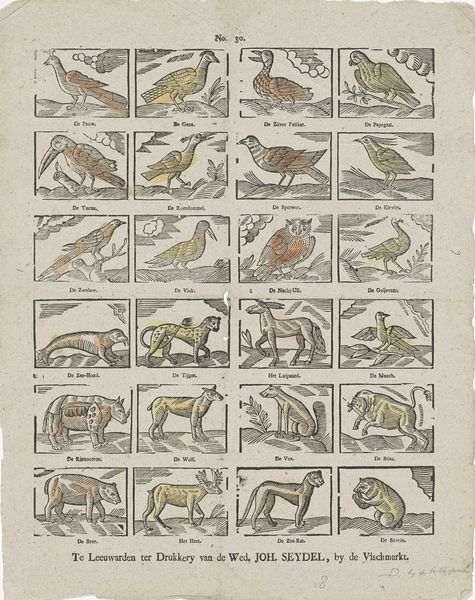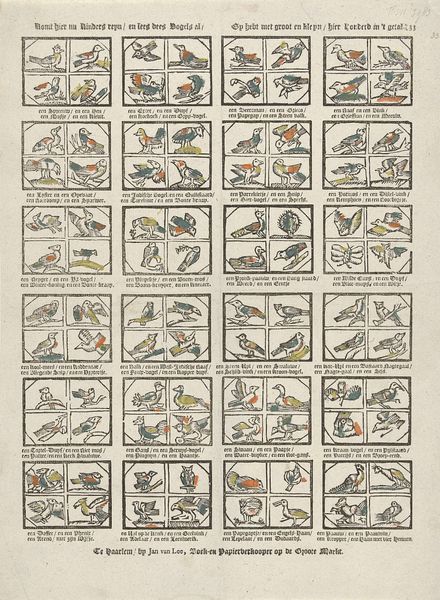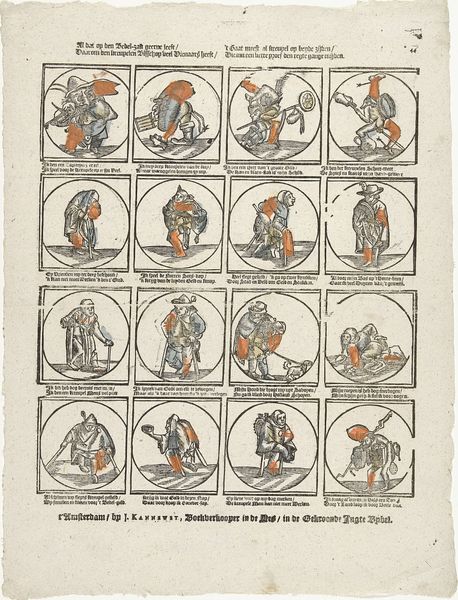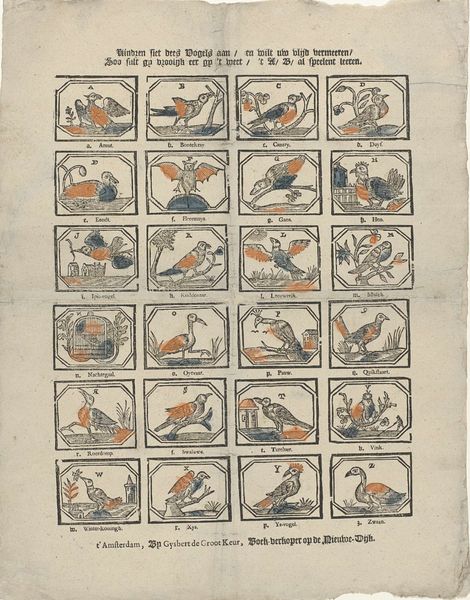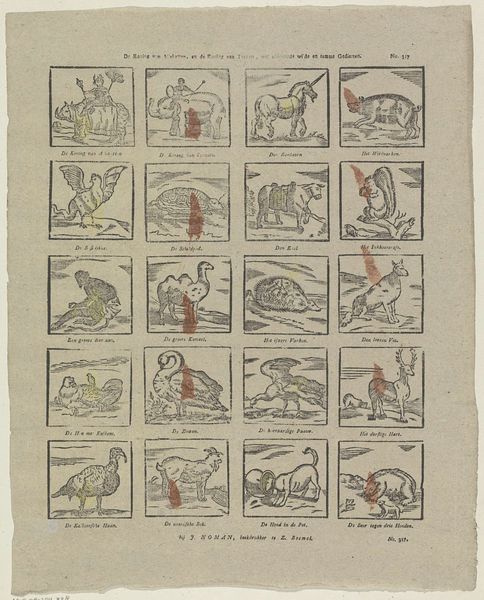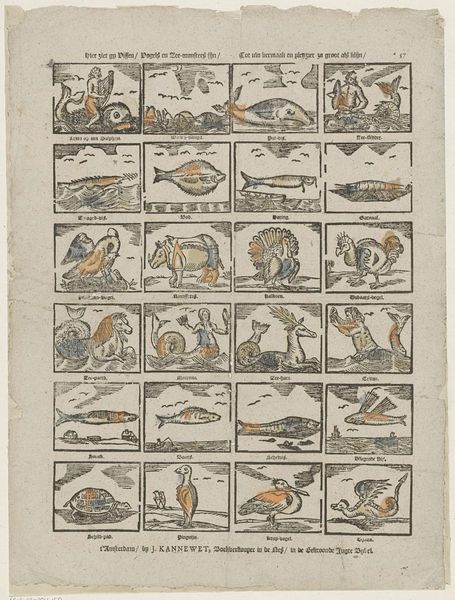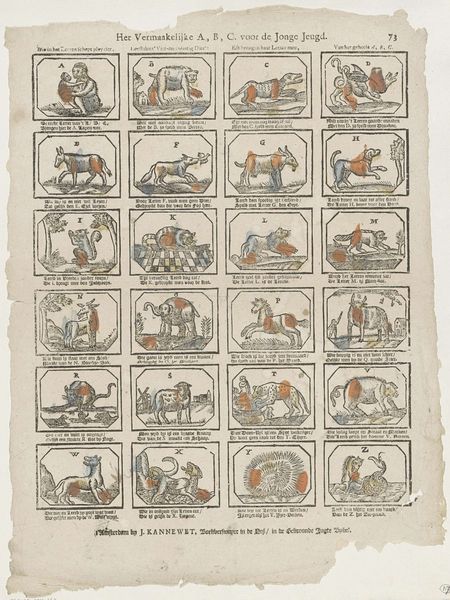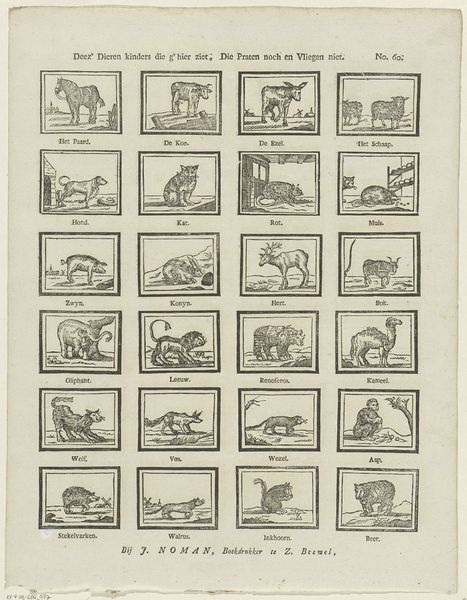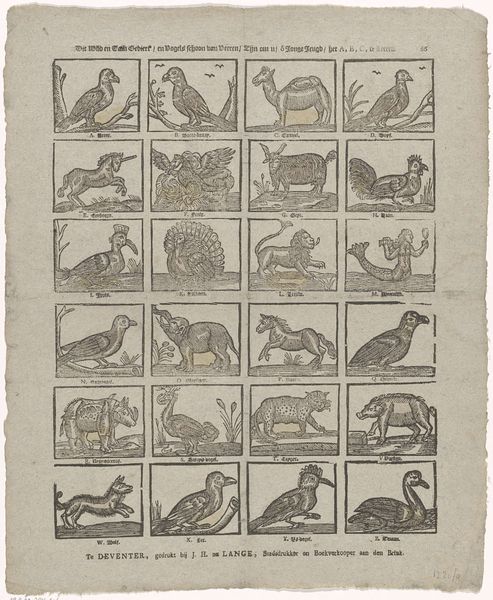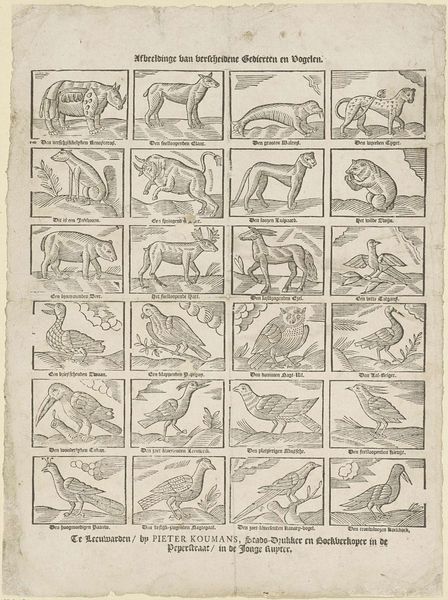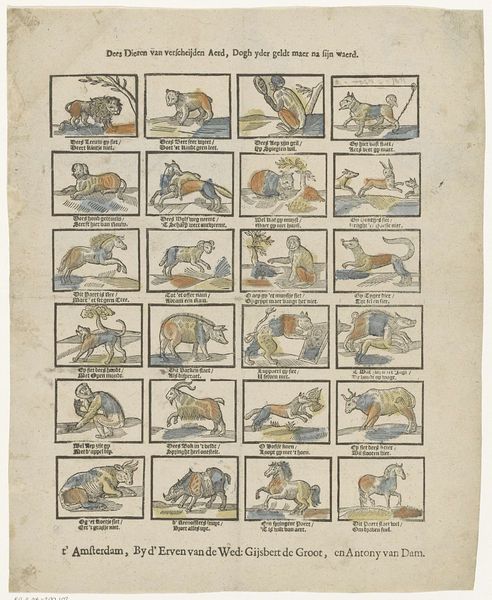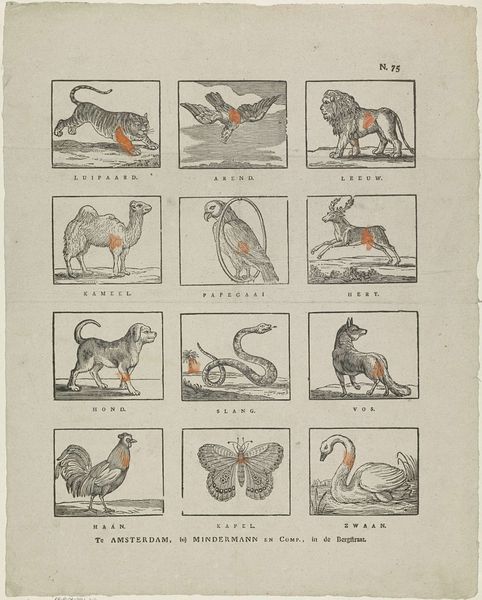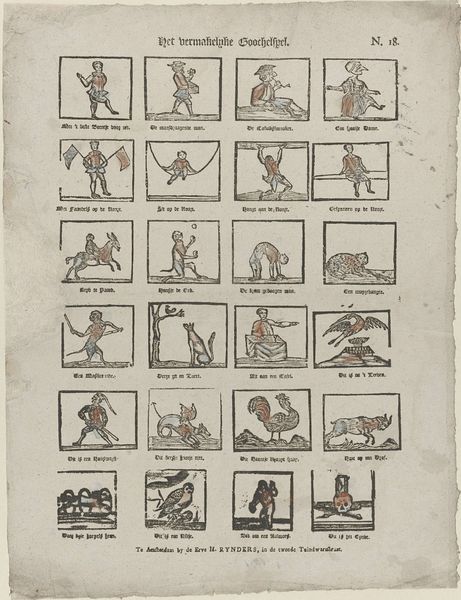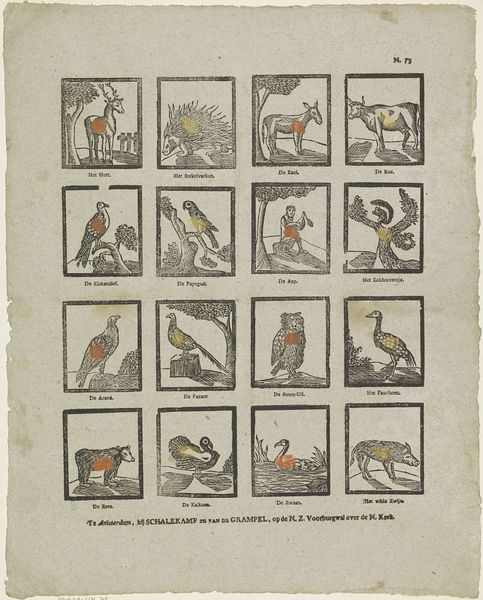
Zo als Adam alle dieren noemen zouden / Dat zoude zijn naam zijn / en die ook behouden 1725 - 1780
0:00
0:00
johannesiikannewet
Rijksmuseum
drawing, print, paper, ink, engraving
#
drawing
#
medieval
# print
#
pen sketch
#
bird
#
figuration
#
paper
#
11_renaissance
#
ink
#
engraving
Dimensions: height 410 mm, width 310 mm
Copyright: Rijks Museum: Open Domain
Editor: Here we have Johannes Kannewet's "Zo als Adam alle dieren noemen zouden / Dat zoude zijn naam zijn / en die ook behouden," a print dating roughly from 1725 to 1780, housed at the Rijksmuseum. It’s composed of these charmingly rendered, boxed animals and what strikes me first is how much the rigid grid contrasts with the organic, flowing lines within each depiction. What do you see in this piece? Curator: The immediate element dominating the composition is indeed that rigorous, almost mathematical division into cells. Each enclosure serves to isolate and, importantly, *define* each individual form. Notice the way the lines of the grid, created by engraving, interact with the more freely sketched figures rendered with ink. The varying density of line, creating darker and lighter areas, attempts to give each animal a sense of volume. Does this regularity offer an impression about the animal kingdom in this time period? Editor: That’s a really good point. I suppose that organizing and naming the animals implies a human desire to classify and understand the natural world, which this grid really drives home. Curator: Precisely. Furthermore, consider the limited use of color. Patches of red and blue wash are applied seemingly arbitrarily. Note the deliberate contrast of colour use between panels: the use of it to mark, as opposed to describe. The application emphasizes shape and graphic structure, rather than illusionistic representation. Editor: It’s interesting how the application of the colors flattens them out again. I’d not really thought about the effect that the simple colour scheme had on the animals. Curator: In scrutinizing these qualities we approach what I’d argue to be a formal key to its understanding, regardless of symbolic intent. It invites further examination. Editor: This makes me see how vital understanding formal techniques can be when analyzing a work like this! Thank you!
Comments
No comments
Be the first to comment and join the conversation on the ultimate creative platform.
